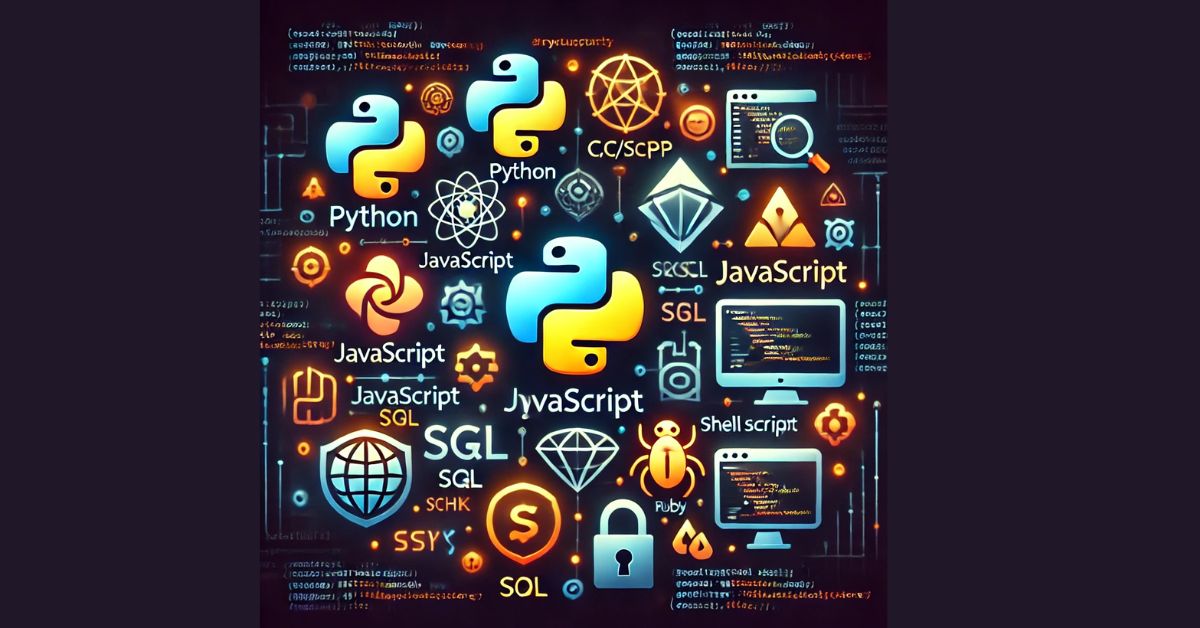In today’s digital world, cybersecurity is a top priority for all. As cyber threats evolve, so does the need for robust cybersecurity measures. A key skill in fighting cyber threats is knowing the right programming languages. They are vital for cybersecurity. This guide will explore the best cybersecurity languages. Every aspiring pro should master them.
Why Programming Skills Are Crucial in Cybersecurity
Programming skills are vital in cybersecurity. They let pros develop secure systems, find flaws, and create tools to fight attacks. Knowing key cybersecurity programming languages helps you understand software systems. It also helps you find and fix security gaps.
1. Python: The Go-To Language for Cybersecurity Experts
Python is a top programming language for cybersecurity. Its popularity is due to its simplicity and flexibility. It is widely used for scripting, malware analysis, and pen testing. It also automates cybersecurity tasks.
Why Learn Python for Cybersecurity?
- Python has libraries, like Scapy, Nmap, and Requests. They help with network scanning and packet manipulation.
- It’s ideal for automating repetitive tasks like scanning vulnerabilities and analyzing malware.
- Its clear syntax makes it easy for beginners to pick up, yet it’s powerful enough for complex tasks.
2. C/C++: Master Low-Level Security
C and C++ are vital for low-level programming. It is key for system security. They let cybersecurity experts use hardware and system resources. So, they are good for reverse engineering and building secure apps.
Why C/C++ Matter in Cybersecurity:
- C is the language of operating systems. So, knowing it helps find vulnerabilities, like buffer overflows.
- C++ gives better control over system resources. This is key for high-performance security tools.
3. JavaScript: Defend Against Web-Based Attacks
JavaScript is key for web development. So, it’s critical for web app security experts. You must know JavaScript to guard against XSS, CSRF, and other web attacks.
Key Reasons to Learn JavaScript for Cybersecurity:
- It’s used for securing web applications and detecting client-side vulnerabilities.
- JavaScript knowledge helps in ethical hacking to understand how hackers exploit websites.
4. SQL: Secure Your Databases
Structured Query Language (SQL) is essential for managing and querying databases. Many cyberattacks, such as SQL injection, target databases. A strong grasp of SQL helps cybersecurity experts find and fix these flaws.
Why SQL Is Critical for Cybersecurity:
- Helps secure databases from SQL injection attacks.
- Enables cybersecurity experts to perform database security audits effectively.
5. Shell Scripting: Automate Cybersecurity Tasks
Shell scripting languages, like Bash, are key for automating tasks and system admin. Cybersecurity pros use shell scripting for testing, scanning, and managing security.
Key Benefits of Shell Scripting in Cybersecurity:
- Automates routine security tasks, saving time.
- Allows quick manipulation of system commands to strengthen system security.
6. Ruby: Ideal for Exploit Writing
Ruby is another language often used in cybersecurity, particularly for building exploits. It powers the popular penetration testing framework, Metasploit.
Why Ruby Is Useful in Cybersecurity:
- Ruby’s flexibility is ideal for exploit writing and quickly prototyping security tools.
- Cybersecurity experts use it to test system vulnerabilities via the Metasploit framework.
Conclusion: Start Learning the Right Programming Languages for Cybersecurity
The right programming language depends on which area of cybersecurity interests you. To excel in cybersecurity, master three skills. Learn Python for pentesting. Use C++ for low-level security. Know SQL for database protection. With rising cyber threats, it’s time to improve your coding skills to secure systems.
FAQs: Cybersecurity Programming Languages
1. Which programming language is the most important for cybersecurity?
Python is seen as the top programming language for cybersecurity. It is versatile, easy to use, and has many cybersecurity libraries.
2. Do I need to learn multiple programming languages for cybersecurity?
Yes, knowing Python, C++, and JavaScript helps with cybersecurity. It lets you handle various challenges. Each language has a unique purpose. They write scripts, and secure web apps and system software.
3. Is SQL necessary for cybersecurity?
Yes, SQL is crucial for database security. It helps cybersecurity experts detect and prevent SQL injection attacks. They are a common database vulnerability.
4. Can I learn cybersecurity without a programming background?
You can enter cybersecurity without a programming background. But, knowing programming languages helps you understand and fight security threats better.
5. Is JavaScript useful in cybersecurity?
Absolutely! JavaScript is essential for securing web applications. Most web apps run JavaScript. So, it’s vital to protect them from client-side attacks like XSS.










